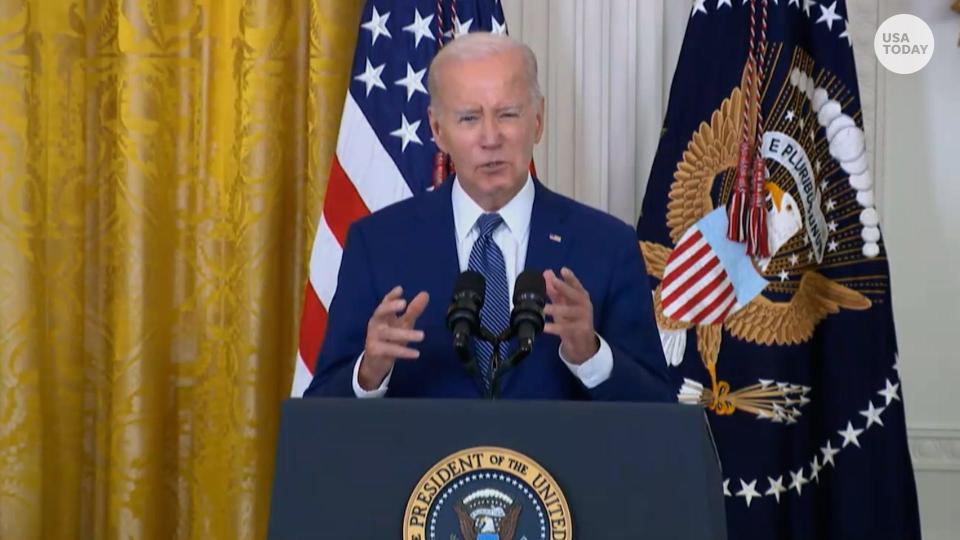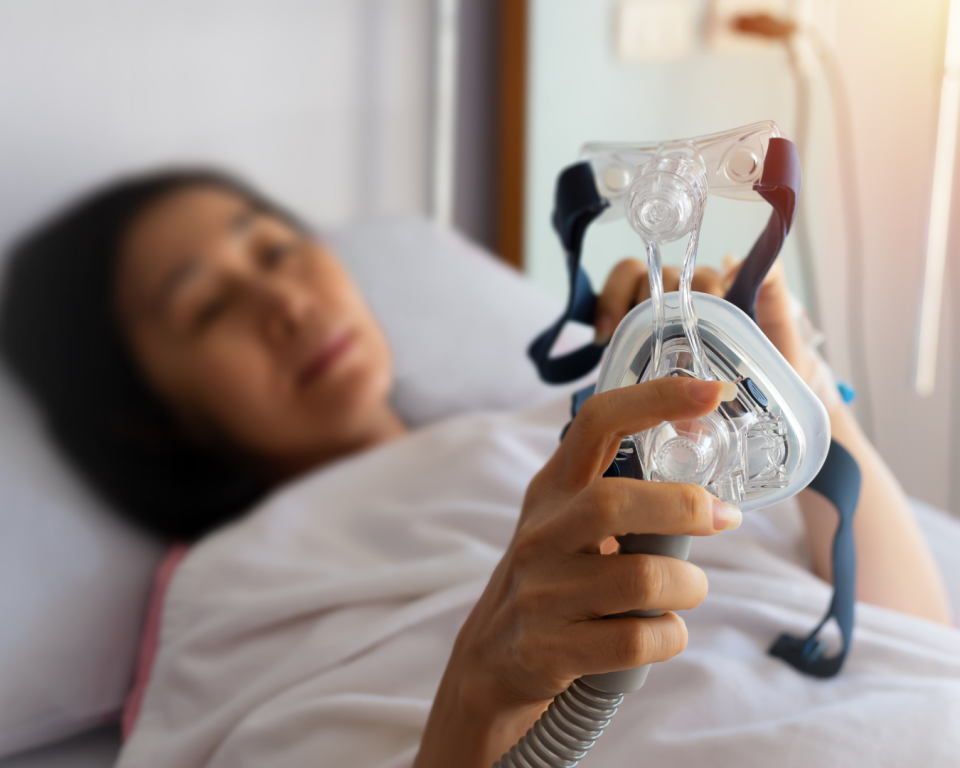Joe Biden using CPAP machine for sleep apnea. What to know about the common sleep disorder.
- Oops!Something went wrong.Please try again later.
President Joe Biden has started using a continuous positive airway pressure machine, or CPAP, as a result of his longstanding history with sleep apnea, the White House confirmed.
"Since 2008, the president has disclosed his history with sleep apnea in thorough medical reports," White House spokesman Andrew Bates said Wednesday. "He used a CPAP machine last night, which is common for people with that history."
But what exactly is sleep apnea and how is it treated? Here's what to know about the potentially serious sleep disorder, which the American Medical Association estimates affects over 30 million people in the United States.

What is sleep apnea?
Sleep apnea is "a common disorder in which breathing is interrupted repeatedly during sleep," Melissa Lipford, M.D., a neurologist at Mayo Clinic, Rochester, previously told USA TODAY. The American Medical Association estimated in 2022 that 30 million people in the United States have sleep apnea, but only 6 million have been diagnosed with the condition.
The disclosure that Biden, the nation's oldest president, has begun to use a CPAP machine comes as voters have increasingly said they have concerns about his age. This month, a USA TODAY/Suffolk University poll found that 37% of Democratic and Independent voters say the 80-year-old president's age makes them less likely to vote for him; just 3% say it makes them more likely.
In February, Biden underwent a physical exam where his physician, Kevin O'Connor, said in a letter released afterward that he remains "healthy," "vigorous" and "fit to successfully execute the duties of the presidency."
More: Joe Biden is using a CPAP machine to deal with sleep apnea
What causes sleep apnea?
While there are multiple types of sleep apnea − including central sleep apnea, obstructive sleep apnea and complex sleep apnea − Lipford said obstructive sleep apnea is most common.
"Obstructive sleep apnea is caused by relaxation of the muscles in the back of the throat as we sleep," she explains. As such muscles relax, they block (or partially block) the flow of air into one's lungs, and the brain then senses the lack of oxygen and wakes the person up in order to reopen the airway.
These awakenings are usually so brief one doesn't remember them, but they often occur many times during the night and can significantly affect the quality of one's sleep. They may even lead to other more serious health consequences. "The repeated nighttime awakenings can lead to being sleepy during the day, poor concentration and increased risk of driving accidents," Lipford said. "Additionally, untreated sleep apnea is associated with high blood pressure, heart attacks, strokes and memory issues."

What is a CPAP machine?
While there is no cure for sleep apnea, it can be effectively treated. Among the most common and effective forms of treatment is a continuous positive airway pressure (CPAP) device.
A CPAP device delivers airflow to the nose and mouth using a face mask or nasal cushion. The flow of air keeps the upper airway passages open, which prevents the brain from having to awaken one's body during sleep. Other treatments include oral appliances that can be worn throughout the night, along with surgical treatments. Lifestyle interventions such as weight loss, avoiding alcohol in the evening and avoiding sleeping on one's back have also proven to be helpful.
What is sleep apnea? The sleep disorder might why you wake up feeling unrested.
How to treat sleep apnea
It's important "to have a discussion with your healthcare provider" if you suspect you may be struggling with sleep apnea, Lipford said, adding that "questions about sleep don’t always come up during a routine physical, so you may need to bring up your specific concerns."
A provider may then recommend sleep testing which can be done in a sleep lab or in one's home to measure the extent of the problem so treatment can be recommended. "When sleep apnea is appropriately treated, the results can be life changing," Lipford said.
Concerned about your sleep? More stories like this:
What is sleep hygiene? What to know to do it right and some tips for better sleep.
Why do people sleepwalk? The details you need to know and how to address it in your life.
Fix your sleep schedule: A broken sleep schedule can be a serious struggle. Here's how to fix it.
Contributing: Daryl Austin and Michael Collins, USA TODAY
This article originally appeared on USA TODAY: What is sleep apnea? Biden's sleep disorder and treatment, explained.

